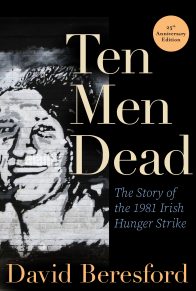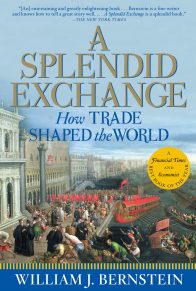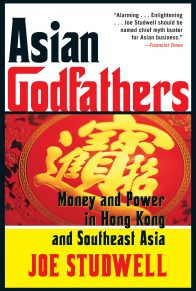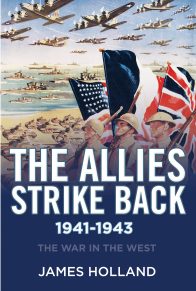Shortlisted for the ALCS Gold Dagger Award for Nonfiction
Ireland, 1879–1882. After 700 years of British rule, the post-Famine generation of Irish tenant farmers began to push back against the reigning feudal system of landownership. The charismatic political leader, Charles Stewart Parnell, headed up the Land League, a revolutionary movement that promised to restore land and power to the people through a series of protests, strikes, and boycotts. After what became known as the Irish Land War had escalated into nationwide anarchy, Parnell and two associates were incarcerated without trial in Kilmainham Gaol. In April 1882, Parnell secretly forged the Kilmainham Treaty, a pact in which he pledged to work diplomatically with British Prime Minister William Gladstone for peace and the eventual independence of Ireland from England. It was a moment of real hope and a potential turning point in history, one that Gladstone himself described as “golden.”
Yet it would be shattered one sunlit evening, on May 6, l882, as Gladstone’s emissary, Lord Frederick Cavendish, who had arrived that day in Dublin, and Thomas Burke, the undersecretary for Ireland, were ambushed and stabbed to death while strolling through Phoenix Park in Dublin. The murders were funded by American supporters of Irish independence and carried out by the Invincibles, a militant faction of republicans armed with specially made surgeon’s blades. The impact of the assassinations was so cataclysmic that it destroyed the peace pact, almost brought down the government, and set in motion repercussions that would last long into the twentieth century.
In a story that spans Donegal, Dublin, London, Paris, New York, Cannes, and Cape Town, Julie Kavanagh traces the crucial events that came before and after the murders. From Parnell’s passionate affair with an Irish MP’s wife, Katharine “Kitty” O’Shea, which eventually caused his downfall, to Queen Victoria’s prurient obsession with the assassinations; from the investiga- tion spearheaded by Superintendent John Mallon, the “Irish Sherlock Holmes,” who tirelessly tracked down each member of the Invincibles, to the eventual betrayal and clandestine escape of leading Invincible James Carey and his murder on the high seas; The Irish Assassins brings us intimately into this fascinating story that shaped Irish politics and engulfed an empire. This is an unputdownable book from one of our most “compulsively readable” (Guardian) writers.
Praise for The Irish Assassins:
Shortlisted for the ALCS Gold Dagger for Nonfiction
“Lively and suspenseful… Ms. Kavanagh’s narrative of high politics and low intrigue, ranging from Dublin to Downing Street and the high seas, brings to vivid life a bloody chapter in the troubled history of Britain and Ireland.”—Wall Street Journal
“Julie Kavanagh has done an adroit unpicking of the intricacies of the history, and her book is at once admirable for its scholarship and immensely enjoyable in its raciness.”—John Banville, New York Times
“A wrenching sense of dashed hopes hangs over this account of the Phoenix Park murders, a pair of attacks on British dignitaries in Dublin in 1882, by the Invincibles, a rogue Irish ‘assassination society.’ The murders, Kavanagh shows, derailed secret negotiations on Irish autonomy between Britain’s Prime Minister William Gladstone and the Irish nationalist Charles Parnell. Kavanagh roams to America and beyond, tracing the many factors that led to the attacks. Her portraits of key actors prove riveting, as do her accounts of the dispossession, starvation, and killing that repeatedly brought Ireland’s people to the point of desperation”—New Yorker
“Kavanagh’s is a sweeping and compelling narrative of a story that more than bears retelling. What she has sought to do, which has not been done before, is to try to connect in time the political and social lives of what is an extended and diverse cast of characters in Britain and Ireland, spanning from the Gladstone household (of which Lucy Cavendish, wife of the murdered Frederick, was a close member), to Parnell’s relationship with Katharine O’Shea, and encompassing the poverty-stricken background in Gweedore of Patrick O’Donnell and his people.”—Irish Times
“It can be hard to navigate the intricacies of nineteenth-century Irish political history accessibly, but Julie Kavanagh’s well-researched The Irish Assassins turns the complex story of the Phoenix Park murders and their aftermath into a pacy and absorbing narrative. Character-driven and strong on human interest, the book tethers the story of the murders to the lives and careers of its protagonists.”—Times Literary Supplement
“With a novelist’s eye for detail, Kavanagh reminds us in her new book The Irish Assassins how English rule in Ireland not only diminished the lives of the oppressed Irish natives but how it also unmoored the moral compass of centuries of English colonists too…pacy and deeply learned…brilliantly entertaining.”—Irish Central
“Julie Kavanagh, in her terrific new book, The Irish Assassins, does a masterful job of sorting through the complexities and making the history accessible and comprehensible…a gripping story, well and clearly told.”—Minneapolis Star Tribune
“You could think of this as the prequel to Patrick Radden Keefe’s best seller Say Nothing… Although the events in these two books are set nearly a hundred years apart, they are linked by the push and pull in that country between Protestant and Catholic, between peace and violence, between independence and accord. —Chris Schluep, Amazon Editor’s Pick
“The tale of the Phoenix Park murders is not unfamiliar, but Kavanagh recounts it with a great sense of drama…Kavanagh’s account reminds me of the very best of true crime, the sort that Dominick Dunne used to write for Vanity Fair. Like Dunne, Kavanagh never hurries; she takes the time to describe characters and places with exquisite detail. An engaging story is rendered beautiful because of the tiny ephemera that a less sensitive author might have carelessly discarded.”—Times (UK)
“The dramatic story of the Phoenix Park murders — including the background to the killings and their cataclysmic aftermath — is told with novelistic panache by Julie Kavanagh… This is not just the fascinating tale of the shadowy group of determined killers and their victims, but it also paints a picture of some of the key political figures of the time.”—Irish Independent
“Journalist Julie Kavanagh’s account of the murders of two members of the British authority in Ireland in 1882 has the plot and intrigue of a sweeping 19th-century novel… The Irish Assassins is a colourful, ambitious book that sometimes spreads its sprawling narrative too thinly—but still makes most other accounts of the period seem bloodless by comparison.”—Sunday Business Post (UK)
“What Julie Kavanagh has done here is to bring this most extraordinary of assassinations to life. The research is meticulous… The writing is clear and yet warm, leaving the reader in no doubt as to how much personalities, foibles and mere coincidence affect law, politics and history. This is one of the best researched and most enjoyable historical reads I have come across in quite some time.”—Sunday Independent (UK)
“Journalist Kavanagh delivers a page-turning history of the murders of the chief secretary and the undersecretary for Ireland in May 1882…This entertaining and richly detailed chronicle offers fresh insights into a conflict whose repercussions are still felt today”—Publishers Weekly
“This entertaining and informative narrative is populated by colorful characters on both sides of the conflict, all of whom are brought to vivid life by Kavanagh’s stellar writing.”—Booklist, starred review
“[A] riveting tale that is both deeply researched and unforgettable . . . Skillfully tells a complex story of ambition, conspiracy, betrayal, and coercion that was centuries in the making, with implications that reach to the 21st century . . . Expertly blending history and true crime, this is an essential read for anyone wanting to understand modern Irish history. Kavanagh’s writing is engaging from start to finish.”—Library Journal, starred review
“[Kavanagh’s] account is gripping. But what makes her book fresh and different is her determination not just to tell a good story but to give full attention to the background and the aftermath, and to bring to life and take seriously not just the main actors but the many significant minor players in the drama.”—Tablet (UK)
“As true crime stories go, this one has it all: clandestine plotting, scandalous affairs, shadowy organizations, brutal murders, far-reaching political implications, and, for good measure, someone known as “the Irish Sherlock Holmes.” …Kavanagh’s gripping account of the murders is a stark reminder that history is a chaotic jumble of chance, circumstance, and opportunity, as much about what could have been as about what was.”—Literary Hub
“In painstaking and sometimes-harrowing detail, journalist Kavanagh examines the fatal 1882 stabbings of Lord Frederick Cavendish and Thomas Burke…A cinematic, multilayered revenge tragedy centered on Ireland’s fraught quest for independence.”—Kirkus Reviews
“Enlightening, absorbing, and very exciting.”—Lady Antonia Fraser
“In The Irish Assassins, Julie Kavanagh manages the extraordinary feat of guiding the reader through the complexities of Anglo-Irish politics while building the combined tension of an electric political thriller with a tragic love story. The people are real, the events still matter today and the impact is Shakespearean.”—Ralph Fiennes
“This book is a fascinating, beautifully written account of an event whose consequences reverberate even today. An act of extremism derailed a constitutional process driven forward by a Prime Minister determined to bring peace to Ireland. The moderate cause of Home Rule collapsed under the weight of outrage against the assassination. The strains which led eventually to partition were strengthened. The fragility of that solution of partition is evident in this time, in the Irish border. It is part of the history of our islands made of course all the more interesting by the extraordinary characters with the leading roles in the drama.”—Tony Blair
“This is one of those rare books that is superbly written, tells me something I need to know, and which grips the imagination from first word to last. Julie Kavanagh has produced an engrossing account of revolutionary violence, political folly and human weakness. It is a powerful work.”—Fergal Keane, BBC correspondent and author of Wounds: A Memoir of War and Love
“Julie Kavanagh has taken a violent and sensational event, the assassination of two senior government official in Dublin in 1882, and placed it in a richly contextualized and many-layered historical setting. Using a wide range of sources and opening up new avenues of enquiry, she vividly demonstrates the convulsive reverberations of one violent act, tracing the shock-waves it sent into political salons at Westminster, cabins in County Donegal, court circles at Windsor, revolutionary cabals in Paris, the Irish leader Parnell’s secret life in a London suburb, and the complex world of the transatlantic Irish diaspora. Consummately well-written and full of novel insights, this is the best kind of historical detective story.”—R.F. Foster, Emeritus Professor of Irish History, University of Oxford
“In The Irish Assassins, Julie Kavanagh has brilliantly succeeded in making a complex sequence of events irresistibly accessible, providing an engrossing narrative that is violent, tragic, sometimes funny, extremely astute and remarkably well written.”—Selina Hastings, author of Sybille Bedford: A Life
















